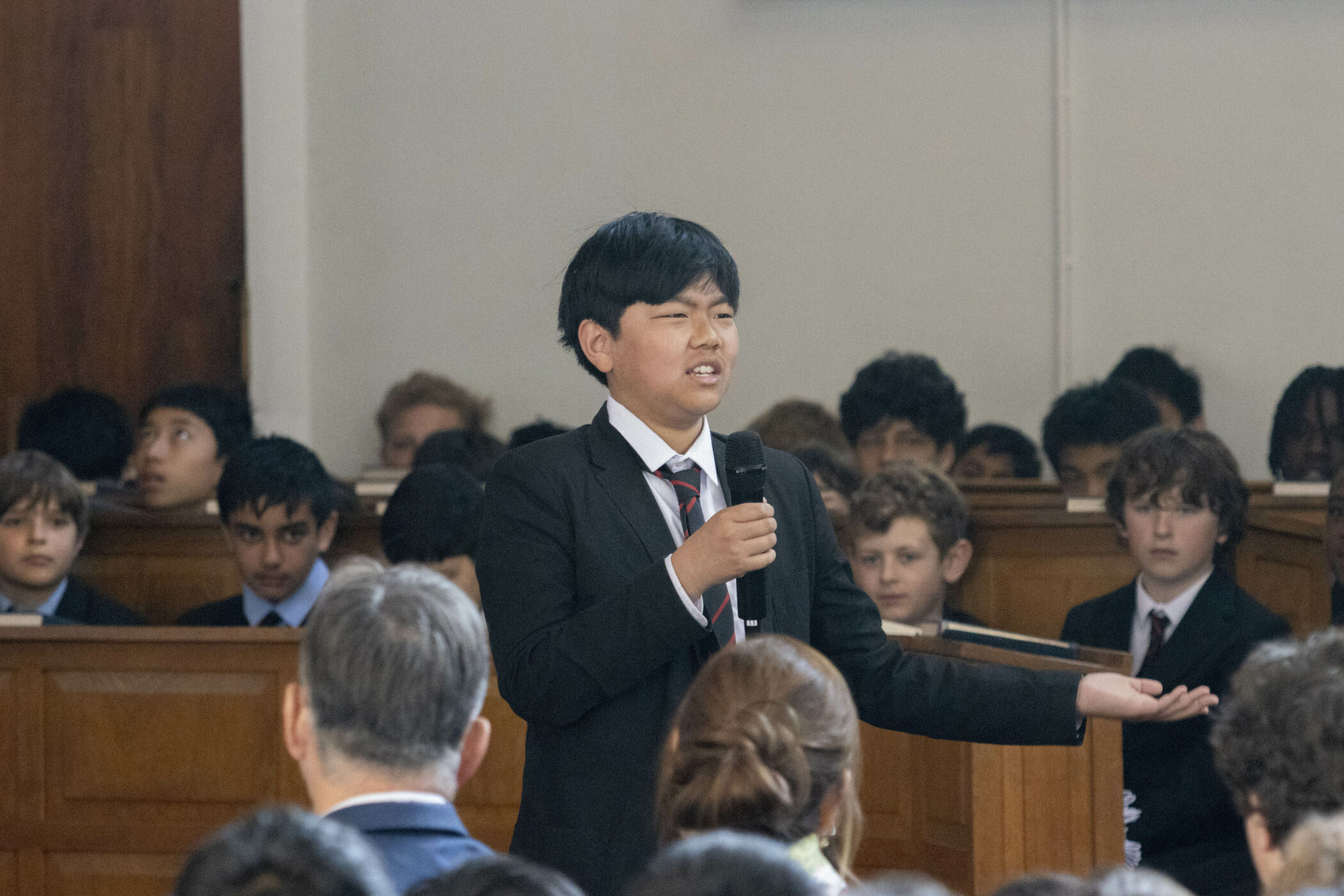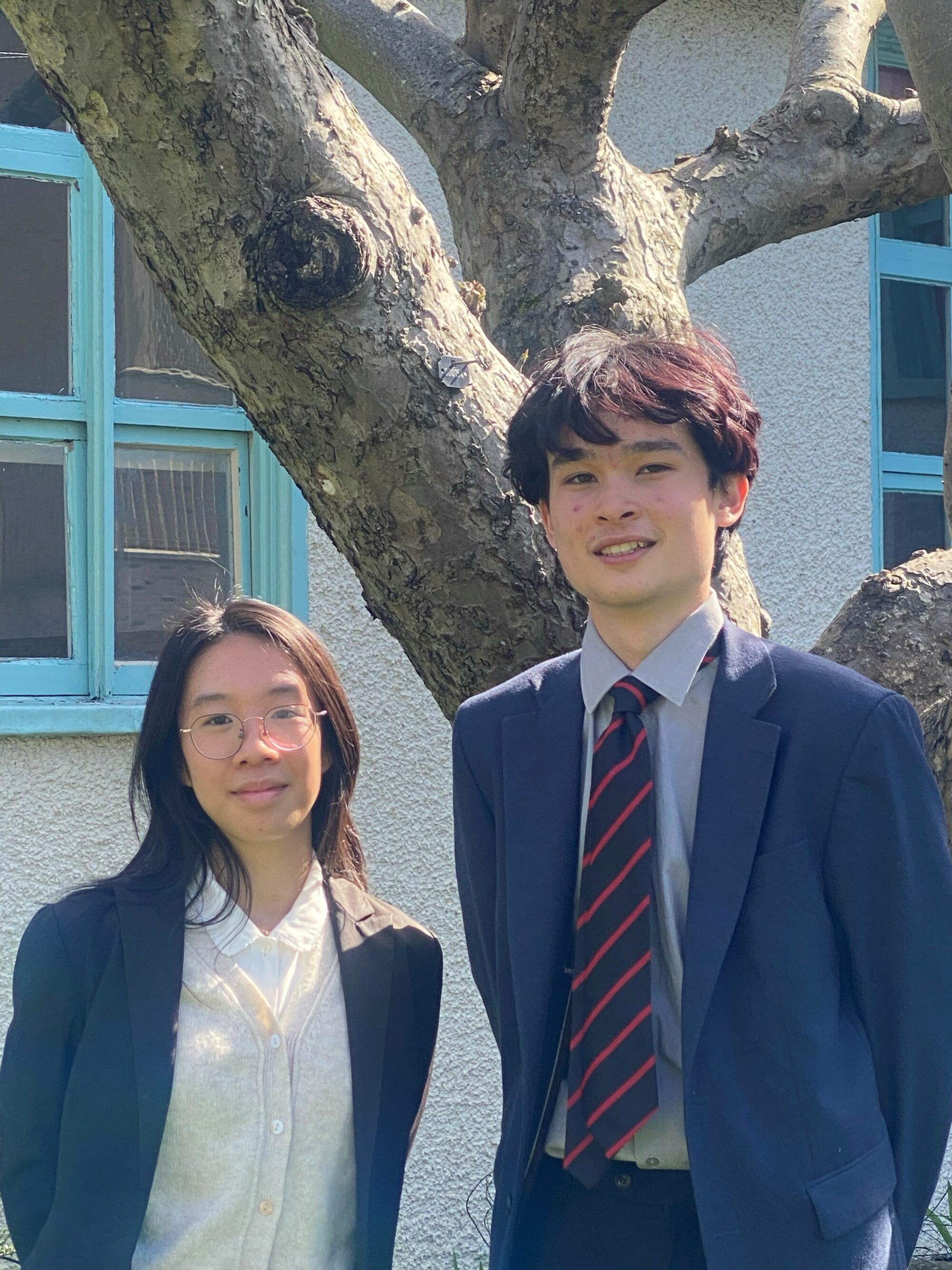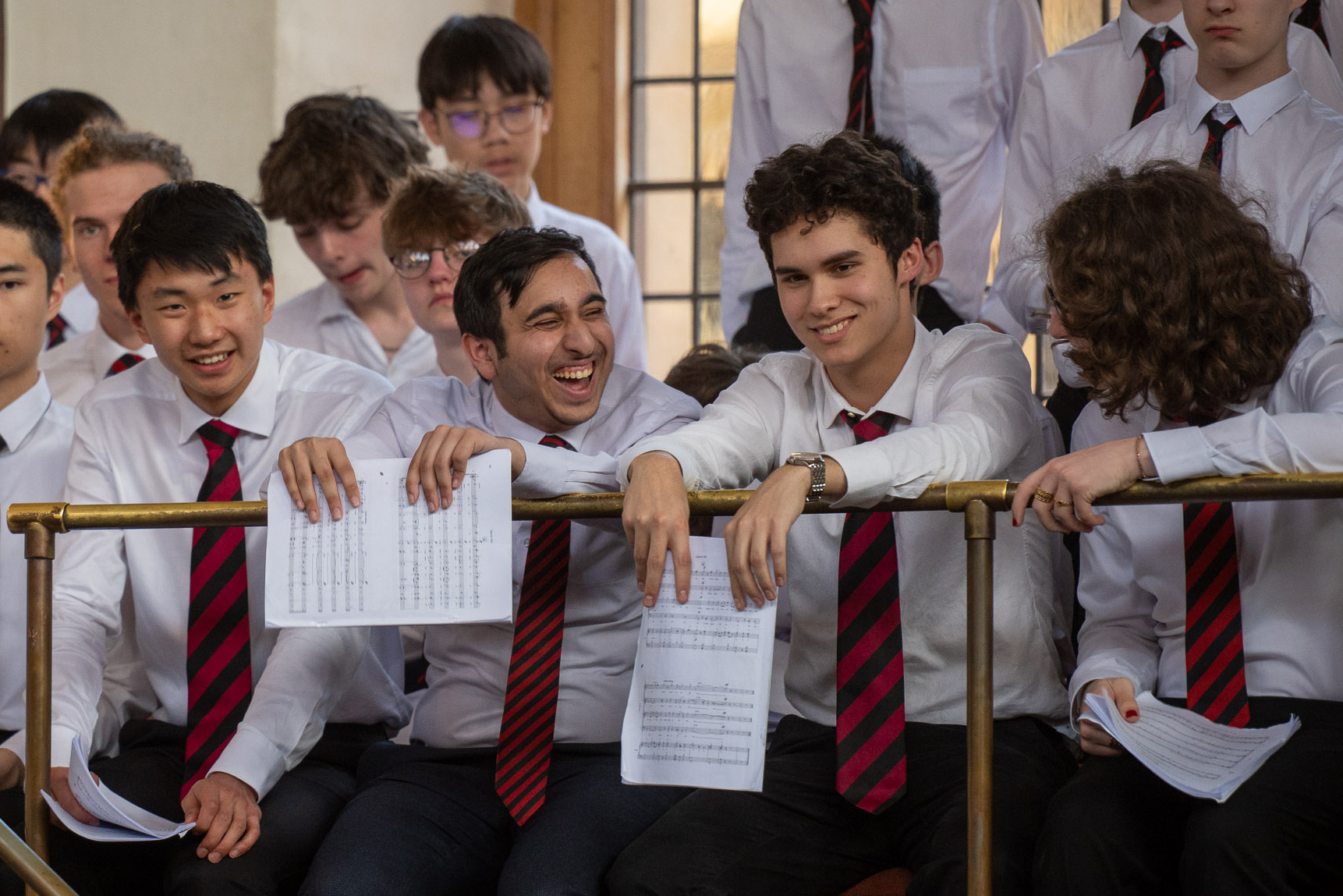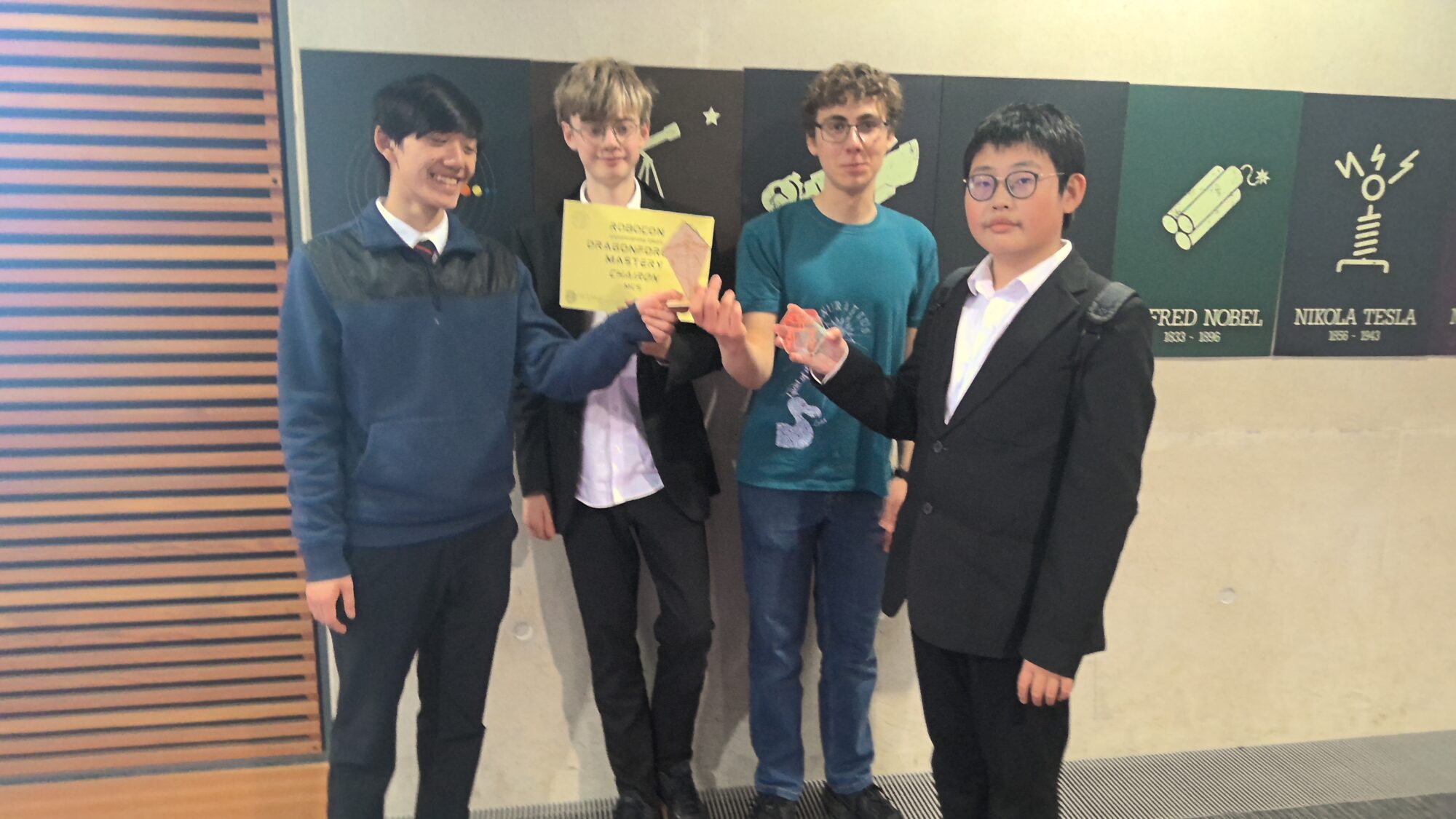MCS was informed by his friend Dr Philip Staniland that Dr John Cruickshank passed away in January 2018. John attended the school from 1950 to 1958, and went on to have a successful medical career. The following obituary was written by John’s friend Michael Archer.
John was a man who always played to his strengths – and they were numerous. Sharp in intelligence and wit. Fast and physical on the sports field. He was the ultimate scholarship boy. Determined to win and totally focused on the challenge ahead. He came to MCS as a ‘City of Oxford Scholar’ on an 11-plus scholarship and instantly made his mark.
Philip Staniland remembers ‘From the beginning John was a role model for us all. On his first day there was a small gang of bullies roaming the playground looking for new boys to torment. Although John was small in stature, he single-handedly sorted them out. He excelled in everything he did, both scholastically and athletically.’ Yes, the blonde-haired pocket dynamo. He was ‘A’ stream material and near the top of the class from the start. Throughout his MCS career he was quietly focusing on his ambition to be a doctor, which came a step nearer when he won an open scholarship to read Medicine at Pembroke College, Oxford.
On the school sports field, he was sprint champion virtually uninterrupted and his pace gave him tremendous lift-off in the long jump. At rugby, even if they could catch him, opponents found him incredibly difficult to tackle because of his low centre of gravity! His pace occasionally allowed him, when blocked in one corner of the try-line, to double back and score in the other! And he was not afraid of rucking his way to the line. You would see a moving bulge in the loose scrum – like a mole burrowing across a lawn!
He began the way he intended to continue in his first match for the Under 13s against his old Headington school teammates. Memories are dim but he must have scored at least three tries in an overwhelming victory. He was in an unbeaten Under-15 side, coached by ‘Tam’ Swann, which I had the privilege of captaining. Among our victories was 45-nil, away to Berkhamsted, captained by Robin Stanier, son of our esteemed Master, Bob Stanier. John, along with several of that team went on to play for the Oxfordshire Colts side and, of course, he progressed to the school First XV in the following three years.
His speed round the court and quick eye made him a very good tennis player – in a year when his contemporaries included David Mitchell, Oxfordshire champion for several years. As a doubles pair they took a lot of beating and, in 1967, they went all the way to Wimbledon where they won the Independent schools’ coveted Youll Cup. He also played hockey for the school.
John was brought up by his irrepressible mother, a former showgirl who became Post Mistress of Headington Post Office. It says a lot for John’s single-minded determination to succeed that he overcame the tragic loss of his father – a successful civil servant – who committed suicide during John’s career at MCS.
‘Crookers’, as he was affectionately known, was one of those fortunate contemporaries who was privileged to be present at the Iffley Roadtrack on Thursday 6 May 1954, when Roger Bannister ran the first four-minute mile. Unlike his schoolmates there, however, John was destined to work with the great athlete when John was Senior House Officer (neurology) at St Mary’s Hospital, Paddington, and then – during Sir Roger’s period as Master of Pembroke College – John helped him set up an ICI scholarship at his old college.
Phil Staniland remembers John’s ability to make people laugh.‘John’, he recalls, ‘was a great wit and gave forth a constant stream of humour– great fun to have on the bus to away games!’ His first ‘stag night’ at St Mary’s Hospital (where he began his clinical training) endorses this. After drinking an incredible mixed cocktail, he led a trio of fellow OW conspirators, dressed in clinical aprons and brandishing stethoscopes, into a ward where we ‘engaged’ with a group of somewhat mystified patients, before plastering Dr Cruickshank’s legs together! No clinical harm was done or alarms raised!
John’s subsequent 50-year career established him as a world authority on beta blockers – and he was never afraid to have a difference of opinion with the National Institute for Health and Care Excellence (NICE). He it was, too, who in an interview with Panorama in June 2001 coined the phrase ‘Economy Class Syndrome’ in relation to the death of a young woman from deep vein thrombosis following a flight from Australia. John’s second wife, Moira, called this his ‘just over a minute of fame’. It all harked back to a letter to The Lancet written by John and two research colleagues back in 1988.
His worldwide reputation was actually built on a career of lecturing, research, managing cardiovascular projects for ICI for 16 years and writing – or co-writing – more than 200 publications on his specialist areas. These included beta blockers, stress and the heart, primary prevention of heart attacks, treatment of heart failure, treatment of type 2 diabetes with hypertension, and lifestyle and cardiovascular risk. John was among those consulted in the early 1970s in the famous case of the footballer Asa Hartford whose transfer from West Bromwich Albion to Leeds United fell through because of his ‘hole-in-the-heart’ condition. Of his six medical textbooks, the main one was Beta-Blockers in Clinical Practice (JM Cruickshank and BNC Pritchard, Churchill Livingston, Edinburgh 1988).
John married twice – the first time for 25 years to Honor, with whom he had two sons, Haydn and Alistair. Haydn is Managing Director of his own London-based specialist lighting company Colour Sound Experiment, Alistair is a teacher in France. John met and subsequently married Moira, a colleague of Honor’s at the same school (The Ryleys in Alderley Edge, Cheshire). They married in January 2000 – the first wedding of the new millennium in Sudbury, Suffolk. John inherited four step-grandchildren and proved himself ‘a fantastic, fun grandad’. He and Moira moved to Macclesfield to be nearer to them.
Typically the fighter, John continued to lecture into the final year of his life and his final book The Beta-Blocker Story – Getting it Right was published just a few months before his death. Cancer was diagnosed in September 2017 but, ironically, the world-renowned heart specialist died of a massive heart attack on 23 January 2018. His funeral was held on 9 February 2018 at Adlington Memorial Park, Macclesfield – his final resting place a beautiful flower meadow. It was attended by family, school, college and professional friends, including two former colleagues from Merck, Germany. A birdbox will be placed in the oak tree overlooking John’s final resting place and all are welcome to visit the park at any time.
 MCS ranks among the top independent secondary schools, and in 2024 was awarded Independent School of the Year for our contribution to social mobility.
MCS ranks among the top independent secondary schools, and in 2024 was awarded Independent School of the Year for our contribution to social mobility.

 28 of our pupils achieved 10 or more 8 or 9 grades in 2024.
28 of our pupils achieved 10 or more 8 or 9 grades in 2024.
 In 2023-24, MCS received over £448,000 in donated funds.
In 2023-24, MCS received over £448,000 in donated funds.




